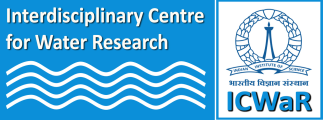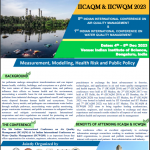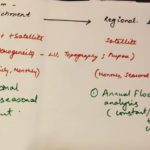Electrochemical Detection of Pollutants in Water and Air
Name of the Speaker: Dr. Shruti Hegde
Title of the Seminar: Electrochemical Detection of Pollutants in Water and Air
Date and Time: 04th January 2024 (Thursday), 02:30 pm
Online Platform: MS Teams (link of the seminar)
About the Speaker: Shruti Hegde received her PhD (Chemical Engineering) from the University of Utah, USA. Currently, she is working as a Postdoctoral Research Associate at the Department of Mechanical Engineering, University of Utah. Her primary research focuses on developing low-cost electrochemical sensing methods for air and water pollutant monitoring. She has over ten publications in the above area of research. She currently works on electrochemical detection of toxic metals and biological pathogens in water and serum to develop a device for use in environmental and health applications. She has also worked on developing low-cost nano sensors to detect volatile organic gases for monitoring indoor and outdoor air quality.
Abstract: Access to clean fresh water is vital for human survival and contamination of freshwater sources, including groundwater and surface water, can cause adverse health effects. Heavy metal contamination in drinking water is unsafe and can cause various human diseases. Similarly, toxins released from pathogens like bacteria and viruses are among the most commonly found contaminants in water, leading to prevalent waterborne diseases. There is a need for rapid, cost-effective detection of the toxins in water. Spectrometry techniques for the detection of heavy metals show good sensitivity and low limits of detection but are difficult to handle and have high operation costs. Polymerase chain reaction and enzyme immunoassay techniques are the gold standard for pathogen detection. However, these methods require several complicated processing steps and expensive instrumentation, which makes these methods unsuitable for use in point-of-use systems. This talk will highlight how electrochemical biosensors are a practical solution for monitoring water quality parameters. Industrial facilities and chemical plants are significant sources of fugitive volatile organic compound (VOC) emissions, and there is a need for cost-effective methods of screening these emissions. This talk will also highlight the results from a low-cost and rapid sensing system comprising an electrochemically anodized TiO2 nanotube-based sensor array to detect benzene, toluene, and ethanol at room temperature.
Date/Time
Date(s) - 04/01/2024
2:30 pm - 3:30 pm















